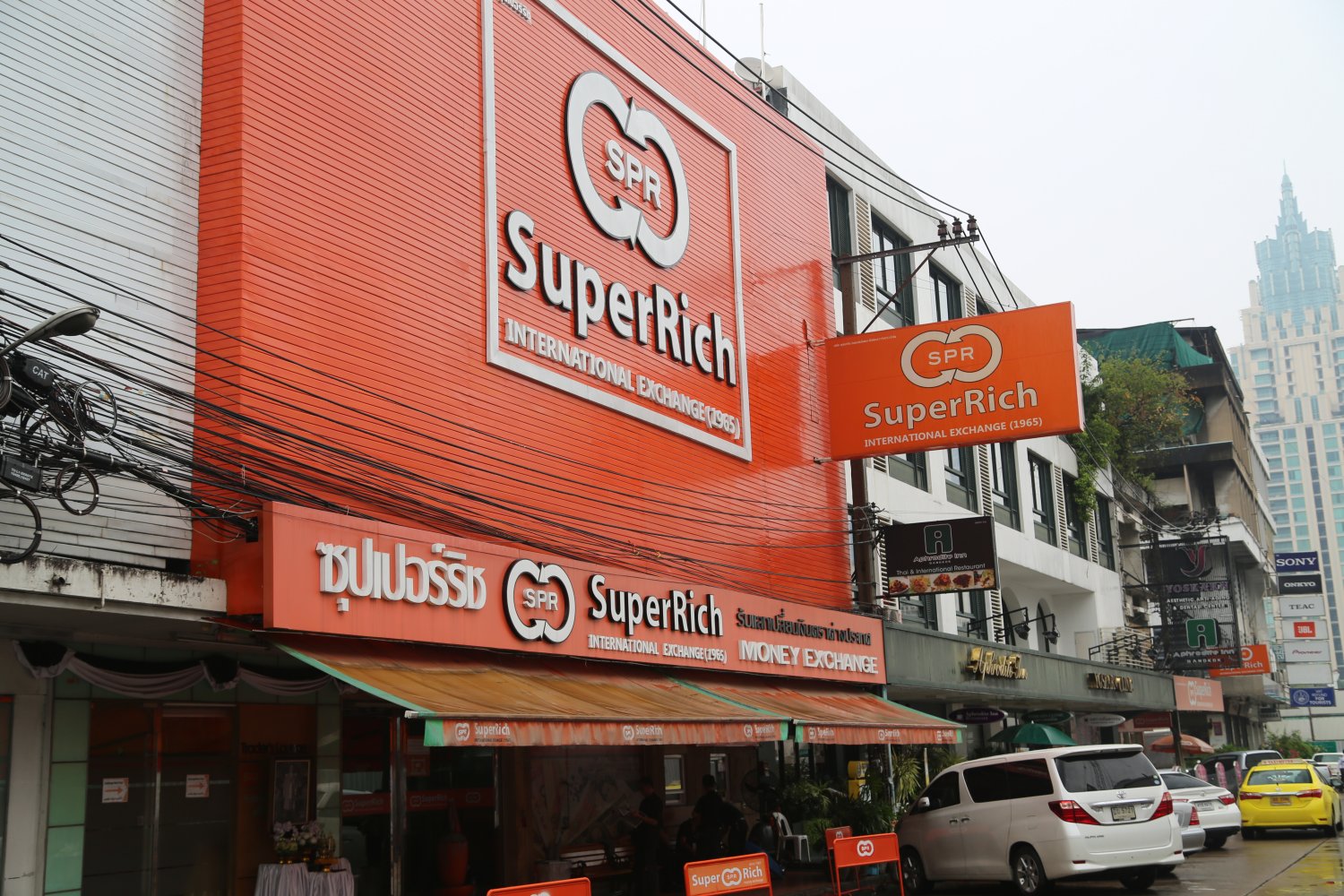Thailand is known around the globe for it’s warm weather, delicious
food and welcoming people, and as such vast numbers of holiday makers
and ex-pats flock there every year. Thailand uses the Baht, which
is accepted everywhere, so before you go you must consider how and
where you are going to exchange your money, or you could fall foul
to fees, charges or poor exchange rates.
There are many options for travellers looking to get their hands
on some Thai Baht, and many exchanges around the world will have some
in stock due to Thailand’s popularity amongst travellers, so
let’s take a look at the pros and cons of each.
Exchanging Before You Go
No matter where you’re coming from, this has got to be the
worst option available. The rates on Thai Baht are typically terrible
on the other side of the world, and a quick check on some money exchanges
show that a large European travel agent seems to offer rates at almost
15% below the actual exchange rate. That means you lose €300
when you change €2000, which is a huge rip-off and should be
avoided. If you bring any Thai Baht back with you, you’ll get
stung a second time too!
Using Thai ATMs
Thailand has many large banks, and ATMs can be found almost everywhere,
even more so in tourist destinations. And when using a foreign card,
you will generally get a good exchange rate too, just make sure that
you inform your bank of the dates that you will be in Thailand so
that they don’t block your card.
Using ATMs in Thailand can be a very easy and convenient way to get
your holiday money, you can draw it out as and when you need it. However,
the big downfall with this method is the fees, all Thai banks now
charge a 220 Baht foreign card fee per withdrawal, plus your bank
almost certainly will charge a fee, plus a foreign currency charge,
all in all costing you around €20 per withdrawal. Considering
most banks have a maximum withdrawal of 20,000 Baht, if you always
withdraw the maximum amount it means the fees amount to around 4%,
much better than changing before you go.
You will also have the added benefit of not having a huge wad of
cash to worry about, and not have to be concerned about getting counterfeit
currency. Therefore this is generally a very good option, as long
as you don’t lose your card!
Changing When You Get There
This is undoubtedly the smartest method of exchanging your holiday
money. In Bangkok, there are money changing booths literally everywhere,
and most bank branches will have a little exchange booth outside too.
For Dollars, Pounds or Euros, the rates are very good indeed, usually
within 1-2% of the actual rate, and the rates are higher for larger
notes than smaller ones.
When changing at one of the major banks, you don’t have to
worry about being short-changed or given fake bills, so this method
will give you the maximum spending money for your trip. There are
some unofficial money changers in Bangkok, but I would avoid these
if you are not very familiar with Thai currency, as the tiny improvement
in the rate will not be worth the risk.
Withdrawing currency in your home country and bringing it with you
is the option which gives you the most value, but you have to consider
that you will be carrying a large amount of cash with you. Thailand
is a very safe country but crime still happens, especially in places
popular with tourists. However, almost all hotels in Thailand have
safes where you can store your money if you are concerned about it.
One final point to note – notes that are torn, defaced in any
way, or excessively creased will be rejected, so make sure you check
them thoroughly before you depart. Oh, and they will want to see your
passport when exchanging too, so don’t leave it at the hotel!
Traveller’s Cheques
Although a safer option than travelling with cash, in Thailand you
may find that using traveller’s cheques is more hassle than
it’s worth. Most banks will only accept American Express cheques,
and even then there will be fees and charges to change them. And bear
in mind that unlike some other destinations, in Thailand you cannot
actually pay directly with traveller’s cheques, so every time
you want to change some, you will have to look for a bank that offers
the service, not ideal when you’re trying to relax.
Conclusion
The worst place to get your Baht would be in a European airport –
London Heathrow offers truly shocking rates on Thai Baht which are
akin to daylight robbery. Thailand has a large and developed banking
industry with ATMs and banks being plentiful. As such, the best option
would be to take some of your home country’s currency with you
(as much as you feel comfortable carrying), change it when you arrive
in Thailand, and bring your ATM card(s) for back-up. Be sure to bring
large notes that are crisp and clean, and let your bank know you will
be going to Thailand, and you won’t have any issues.
You can read another interesting article about The best physical exercises to prepare for a meeting with a Bangkok escort.
Don't hesitate to contact us and check our homepage!




